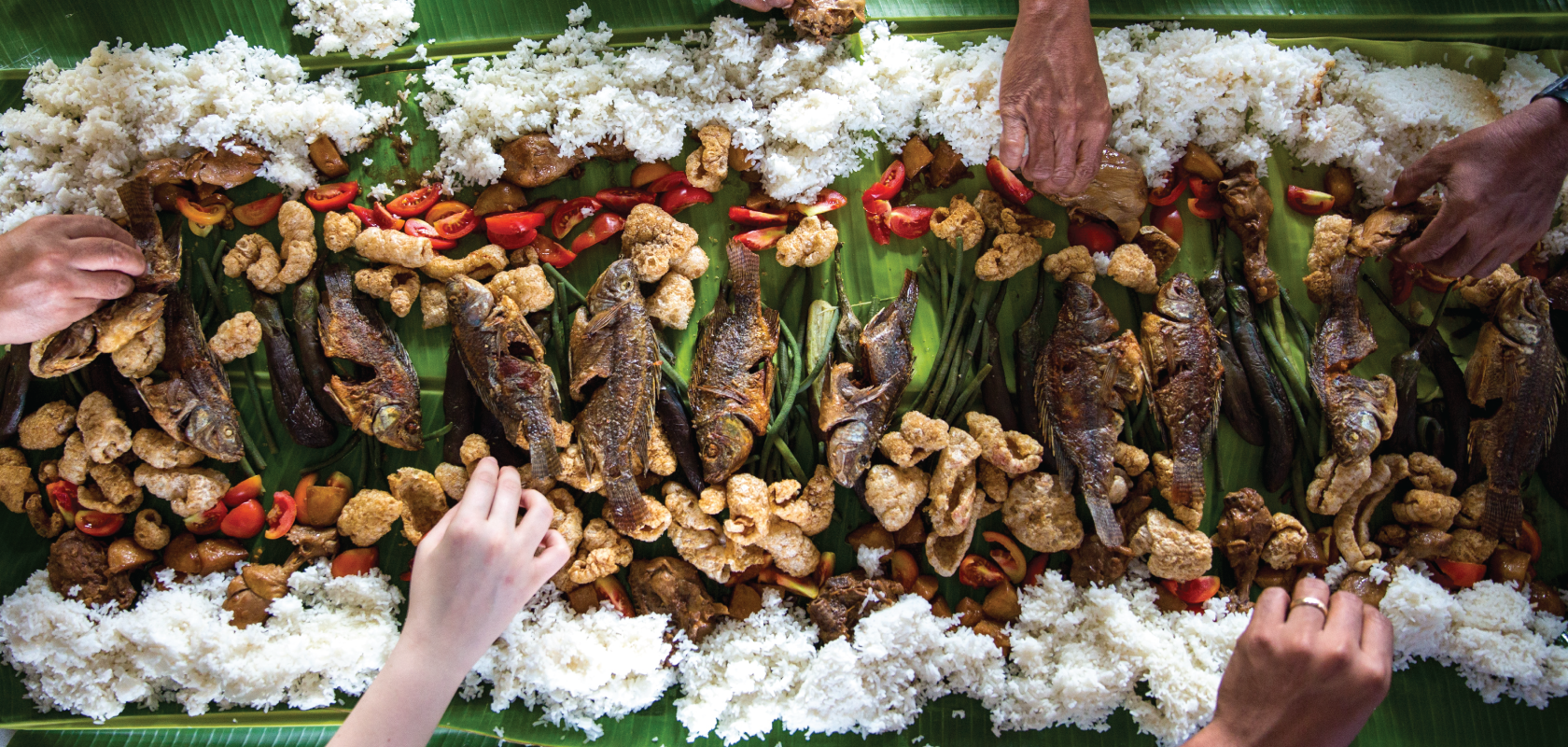Heard about these Asian cuisines but not sure what the local experience is like? Here are our expert tips on the differences and similarities between food at these Asian destinations and what to order when you visit.
Thailand
It’s not uncommon for Thais to greet each other with the question, “have you eaten yet?” Such is the centrality of food to Thai life. With a cuisine that blends influences from China, Malaysia, Indonesia, Myanmar and more, Thai food packs a complex and flavourful punch, and what you’ll find locally is even better than what you may have tried at home thanks to fresh, local ingredients.
While many cuisines have a distinct hallmark flavour, herb or spice blend, the beauty of Thai cuisine is in the symphony of flavours it creates. Every dish must combine some elements of spicy, sour, salty, sweet and bitter, and every good meal should offer a diverse combination of textures, a bit of crunch in one bite, something tender and then something slippery the next.
Favourites like green curry, stir-fried chicken with cashews, or pad thai are ubiquitous in Thailand, available at stylish eateries or pocketbook-friendly street stalls. When in the Land of Smiles however, try the stuff you can’t get at home, like somtam (papaya salad), larb moo (minced pork dressed with lime juice, fish sauce, mint leaves, onions and chillies) or kor moo yang (grilled pork neck), which comes with an incredible dipping sauce.
Contact us here for a tailor-made foodies’ tours.
Philippines
These tropical islands are blessed with an abundance of seafood as well as tropical fruits and vegetables. A melting pot of cultures, the Philippines’ history and heritage come to life in its cuisine, and Filipino cooks continue to push the envelope in the creative ways they combine tastes and traditions.
Take, for instance, the ubiquitous adobo. While Mexican in origin, Filipino cooks have long embraced the practice of cooking meat in this flavourful combination of vinegar, soy sauce, salt, pepper, garlic and spices, not just because the result is delicious, but it’s also a practical way of preserving meats without refrigeration.
While the cuisine throws in some curveballs which will shock the Western palate – like balut, a local delicacy of cooked duck embryo – certain favourites are near universal. Who can resist lechon, a whole spit-roasted pig with gleaming, crispy browned skin?
Contact us here for a tailor-made foodies’ tours.
[showimage url1=”https://dth.stagingurls.com/wp-content/uploads/2018/10/MOOPING-TH1.jpg” url2=”https://dth.stagingurls.com/wp-content/uploads/2018/10/ADOBO-PH1.jpg”]
Malaysia
This peninsula and archipelago nation shares borders, seas and culinary influences with the Chinese, Indians, Thais and Indonesians. Small wonder the local cuisine is so flavourful and diverse. In the Malay pantry, you’ll typically find chillies, spices, shrimp paste, coconut milk, soy sauce, lemongrass and pandan leaves. Whether these are then combined into a curried broth or tossed into a stir-fry, the result is savoury, often slightly sweet, and unmistakably delicious.
Try rice-based nasi lemak, often referred to as the national dish, laksa (noodles served in a sweet, spicy broth), or mee goreng (stir-fried noodles) which will vary in flavour and ingredients depending on the part of Malaysia you try it in. You’ll also find the local version of foods that are also popular in Indonesian cuisine, like satay, rendang or sambal.
See all Malaysia’s Foodies’ Tours right here.
Hong Kong
Hong Kong is home to some of the most food-obsessed people in the world, and whether your palate yearns for authentic Chinese flavours or experimental fusion foods, you won’t be disappointed. With a long history of migrations from the mainland, you’ll find every variation of Chinese cuisine executed to perfection in both lavish lounges and hawker stalls.
When it comes to dim sum, the sheer diversity and number of such eateries is enough to knock your socks off, even before you’ve sampled your first delicious xiaolongbao or shumai dumpling. Be sure not to miss out on trying Cantonese-style duck or crispy and tender pork cutlets served over rice. Whatever the food mood you’re in, Hong Kong will be able to supply it; the city has it all and does it well.
Contact us here for a tailor-made foodies’ tours.
[showimage url1=”https://dth.stagingurls.com/wp-content/uploads/2018/10/NASILEMAK-MY.jpg” url2=”https://dth.stagingurls.com/wp-content/uploads/2018/10/SIAOLONGPAO-HK.jpg”]
Vietnam
The spectrum of Vietnamese cuisine is surprising for such a small country, and you’ll find that each region or town will often have its own take on a popular dish. While many ingredients are similar to those of Thai or Chinese cuisine, Vietnamese food is notable for its abundant use of fresh herbs and vegetables. Often avoiding oil and dairy, it’s a remarkably healthy cuisine, but that doesn’t mean it skimps on flavour.
From rich broths, soups and congee to flavour-packed wraps and rolls, traditional Vietnamese chefs combine fragrance, taste, and colour to create balanced and delicious dishes. Local favourites include cha ca (fried fish cakes), pho (noodles served in a hot beef broth), bun bo hue (noodles in a spicy broth), and banh xeo (savoury pancakes) just to name a few. You’ll also find the French culinary influence in certain dishes, most notably banh mi, a single-serving baguette sandwich. The best place to try
Vietnamese food won’t be at a fancy restaurant, but at the cheap and cheerful traditional open-air markets.
See all Vietnam’s Foodies’ Tours right here or contact us for a tailor-made foodies’ tours.


